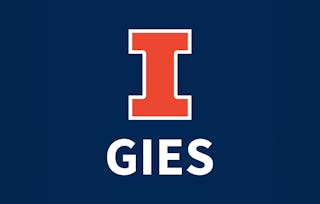This foundational course introduces and illustrates the components of total investors’ returns, and how to apply balanced value investing strategies to optimize total risk and returns for investors in equity. It explains and illustrates intrinsic valuation techniques including earnings and EBITA (or EBITDA) multiples valuation, the dividend valuation model (DVM), and discounted cash flow (DCF). It also discusses and illustrates net assets valuation, market-to-book ratios (MBR), portfolio construction, and qualitative and behavioral success factors including client relationship management.

Value Investing Strategies
Ends soon: Gain next-level skills with Coursera Plus for $199 (regularly $399). Save now.

(13 reviews)
Recommended experience
What you'll learn
Describe and illustrate the components of total shareholder return (TSR) and their interrelationships.
Explain and apply a range of methods for assessing the intrinsic value of the equity or the whole business of a firm.
Explain value investment strategies based on identifying potentially under-valued firms.
Discuss the limits and challenges with value investing strategies and the hurdles that investors should be prepared for when implementing them.
Skills you'll gain
Details to know

Add to your LinkedIn profile
7 assignments
See how employees at top companies are mastering in-demand skills

There is 1 module in this course
This foundational course introduces and illustrates the components of total investors’ returns, and how to apply balanced value investing strategies to optimize total risk and returns for investors in equity. It explains and illustrates intrinsic valuation techniques including earnings and EBITA (or EBITDA) multiples valuation, the dividend valuation model (DVM) and discounted cash flow (DCF). It also discusses and illustrates net assets valuation, market to book ratios (MBR), portfolio construction and qualitative and behavioral success factors including client relationship management.
What's included
26 videos7 readings7 assignments
Offered by
Explore more from Finance
 Status: Free Trial
Status: Free TrialInteractive Brokers
 Status: Free Trial
Status: Free TrialUniversity of Illinois Urbana-Champaign
 Status: Free Trial
Status: Free TrialUniversity of Illinois Urbana-Champaign
 Status: Preview
Status: Preview
Why people choose Coursera for their career





Open new doors with Coursera Plus
Unlimited access to 10,000+ world-class courses, hands-on projects, and job-ready certificate programs - all included in your subscription
Advance your career with an online degree
Earn a degree from world-class universities - 100% online
Join over 3,400 global companies that choose Coursera for Business
Upskill your employees to excel in the digital economy
Frequently asked questions
To access the course materials, assignments and to earn a Certificate, you will need to purchase the Certificate experience when you enroll in a course. You can try a Free Trial instead, or apply for Financial Aid. The course may offer 'Full Course, No Certificate' instead. This option lets you see all course materials, submit required assessments, and get a final grade. This also means that you will not be able to purchase a Certificate experience.
When you purchase a Certificate you get access to all course materials, including graded assignments. Upon completing the course, your electronic Certificate will be added to your Accomplishments page - from there, you can print your Certificate or add it to your LinkedIn profile.
Yes. In select learning programs, you can apply for financial aid or a scholarship if you can’t afford the enrollment fee. If fin aid or scholarship is available for your learning program selection, you’ll find a link to apply on the description page.
More questions
Financial aid available,



